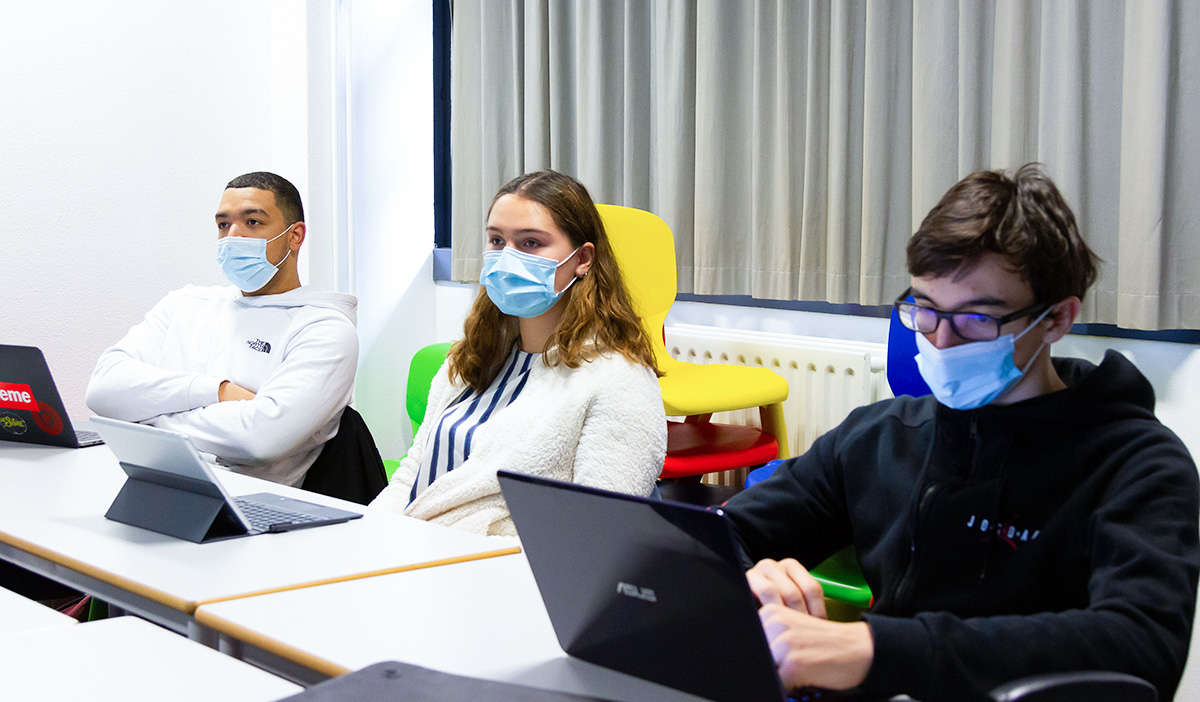More than 1200 students involved, 226 inter-school teams, 25 trainers. Pole Leonard de Vinci recently hosted a week of activities dedicated to digital sobriety, a sustainable development initiative.
As part of the Soft Skills cross-disciplinary week, ESILV’s engineering students were asked to come up with solutions at their level to reduce the environmental impact of their digital practices. Divided into 226 cross-disciplinary teams, students from the three schools of the Pole Leonard de Vinci, ESILV, the generalist engineering school, EMLV, the management school and IIM, the digital school, have been working together from 12 to 16 October on the theme of digital sobriety.
Engineering students come with a new awareness of their digital footprint
The conclusions – more or less reassuring – came after a week of creative reflection on the potential conflicts and synergies between digital technology and the environment.
When you use a computer or a smartphone, it is not so obvious to realise the carbon footprint cost of your digital life: emails, data, streaming series. Moreover, it is almost impossible to neutralise the negative impact of the increasing number of digital devices on the environment and the ecosystems.
The students have all committed to deploying a solution for digital sobriety as a way of reducing their carbon footprint.
For example, an application adapted to the individual needs of each user that might be made available to higher education establishments as a means of increasing students’ awareness of small individual gestures.
Because digital consumption has seen a sharp increase since the start of the health crisis, this cross-disciplinary team of students came up with a mobile application to reduce digital pollution. Users are adding their daily schedule voluntarily to this application in such a way as to be proposed specific time slots where digital tools may not be used during classes.
A reward points system in higher education might encourage students who are the most efficient at minimising the use of digital resources. Timothée, class of 2024, shows us the importance of such actions to change behaviours.
“As engineering students, we are at the root of this hyper-digitisation. We are the ones who are increasingly using digital devices, and we, therefore, need to see how we can make people use them more appropriately. Such applications can help to reduce digital pollution in schools. For example, we did a survey and found that 80% of students are distracted by their phones during classes.
The conclusion was to implement a mobile app that would remove notifications, “prevent” students from going on social networks during a class or revision period, to help them focus a little more on their course and use less digital technology”.
This ambition to tame the Internet is part of a major collaborative project in which ESILV is participating as a member school of the association Talents du numérique and a signatory of the Planet Tech’Care manifesto. Supporting responsible digital technology through the joint action of a hundred or so partner establishments and companies is the purpose of this initiative, which strives to reduce the environmental footprint of digital technology.
Educating socially responsible engineers also involves questioning digital technology, assessing each solution in real-life situations and promoting a digital sobriety strategy, a set of exercises conducted during this cross-disciplinary week by the engineering students.
This post was last modified on 17 November 2020 4:37 pm







